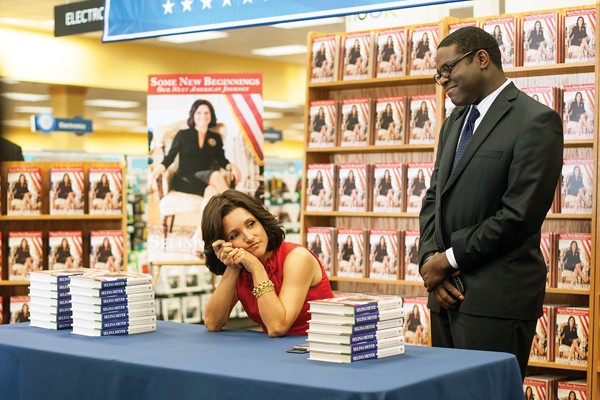A couple of Sundays ago, visionary writer, producer, and actress Issa Rae gave a red carpet interview at the 69th annual Primetime Emmy Awards. After a few minutes of routine celebrity banter, the interviewer asked Issa which stars she was rooting for to win the night. Issa answered with the brilliance and honesty that is a staple of her brand: “I’m rooting for everybody black. I am.”
Of course, that portion of the statement can be taken on its face, as in “I’m rooting for all of the historically excluded and underpaid black talent and staff to actually win something during this annual celebration of whiteness and white media,” and if one were to read her statement in that way, they wouldn’t be wrong. The post-“rooting for everybody black”-content economy is full of black writers agreeing that, yes, every time there is a black person in any sort of public competition and their opposition is whiteness, we are all casting our lots with the black contestants. But Issa Rae has consistently proven that she is a genius, and in her unapologetic expression of that statement during this heavily televised event, she gave black people young and old the freedom to plumb the depths of a long-held ideology that stretches well beyond the red carpet. If “rooting for everybody black” is personal, then, to quote radical feminists, it is also a deeply political act.
I am often accused of hating white people in this space. While individual white people have done a lot to me personally for me to justifiably dislike them, I don’t hate them. Honestly, I have better things to do with my time and energy than hate white people, like learning to speak Chinese or figuring out quantum entanglement. If there’s anything I hate, it’s white supremacy, the system that unfairly elevates white people and prioritizes their concerns and policies to the great detriment of my own ancestors and friends. And yes, while I do hate white supremacy, I love black people more. And I especially love black Memphians, having had the bulk of my positive formative experiences with them. I love black people here so much that, to borrow Rae’s phrase, I’m rooting for everybody black — everybody black in Memphis, in particular.
 Mike Blake | Reuters
Mike Blake | Reuters
Issa Rae
Black Memphians should be winning; statistically, halls of power and paths to access should be swollen with black Memphians in leadership and administrative roles. Our governmental systems should be working to prioritize our concerns, concerns that intersect with those of most other marginalized groups in this city. We should not be locked out of the jobs that pay the highest wages. We should be considered at every phase of public planning that this city undertakes. We should not be this city’s footnote.
But we all know that these things are not the current state of affairs for black Memphians. We need supporters too. We need people to root for us, to make noise and rouse some rabble on our behalf, both publicly and privately.
Rooting for black Memphians is not some abstract concept. If you root for black people, you want them to win, and this is something that could totally be applied politically and systemically in real time. Issa Rae’s example is perfect. Rae is a showrunner and creator who, herself, is a black business. She’s employed black actors throughout the course of her career, many of them following her across her projects. She’s enabled black production staff to gain valuable experience at their positions, which sets them up for success further down the line. For you or me, rooting for black Memphians looks like this: creating opportunities for them to have the same economic, political, and social experiences and successes that have been historically denied. This means doing your part to create access to these experiences.
I do my best to support not only black success in a theoretical sense, but also in real time. I try to patronize black businesses. I sometimes de-prioritize my own comfort to put myself in the way of something that might harm a black person who doesn’t have the same privileges that I have. I strongly dislike talking on the phone, but I still call my elected officials when they are doing things that harm black Memphians. I advocate for causes that will positively affect black lives and have difficult conversations with people in my spheres of influence about bias, assumption, and prejudice.
We’ve long been told that it’s taboo, or even racist, to try and stack the odds in black people’s favor, both in Memphis and across the country. But as our city rockets toward its future, those Memphians who face the largest risk of being left in progress’ wake — or worse, exploited in the name of progress — need us to advocate for them more than ever.
Troy L. Wiggins is a Memphis writer whose work has appeared in the Memphis Noir anthology, Make Memphis, and The Memphis Flyer.
 Paul Schiraldi
Paul Schiraldi